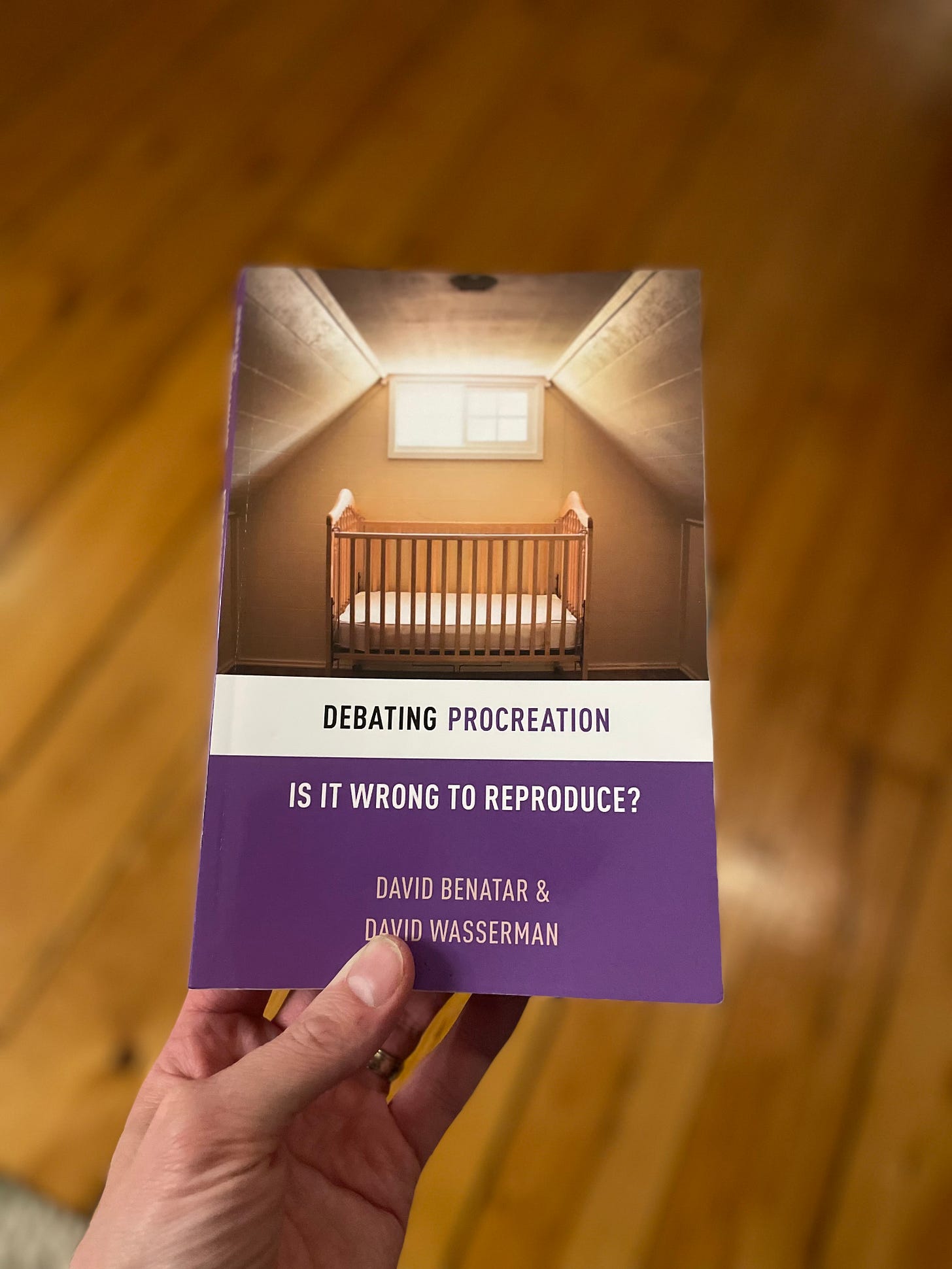This is a debate book (from a debate series from Oxford University Press).
David Benatar revisits his case for anti-natalism (which I reviewed here), while enhancing it with what he refers to as the “argument from misanthropy” (i.e., with the case that procreation is not only a harm to the one who comes into existence — but that it is also a harm to all of those who already exist). His framing here is tighter — a concision likely driven by the limitations of the debate format, though doing no harm to the overall thrust of his argument.
David Wasserman defends a more typical position — a qualified defense of procreation. After examining the flaws in several other pro-natalist arguments (the Non-Person Affecting Principle, Procreative Beneficence, Generalized Procreative Beneficence, and Procreative Altruism), he advances his own arguments — that procreation can be both in the interests of the child who only exists after procreation, but that also is moral only inasmuch as the parents have child-as-end-not-means intentions.
Overall, I recommend the book. Wasserman’s writing is at times not as clear or concise as the reader might wish, but as far as both an overview of previous pro-natalist arguments that have been found flawed, as well as the advancement of a novel argument, it’s well worth the read.




